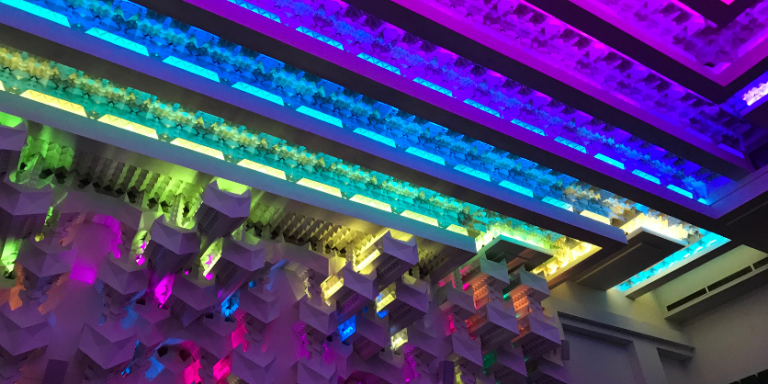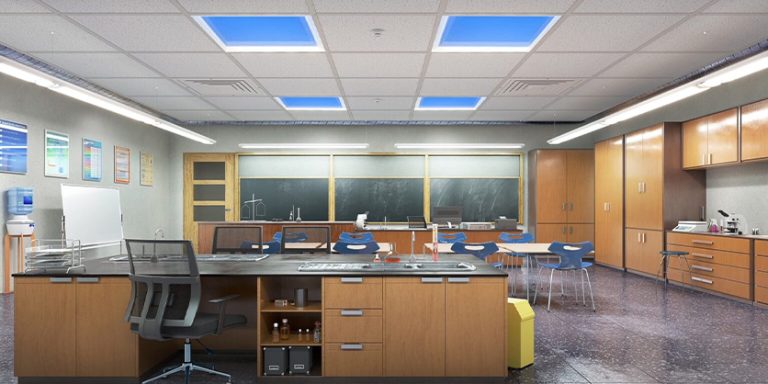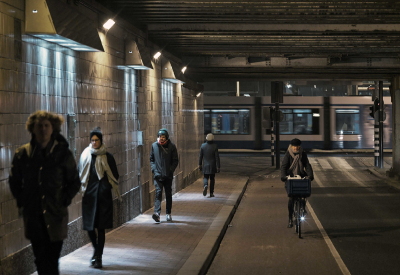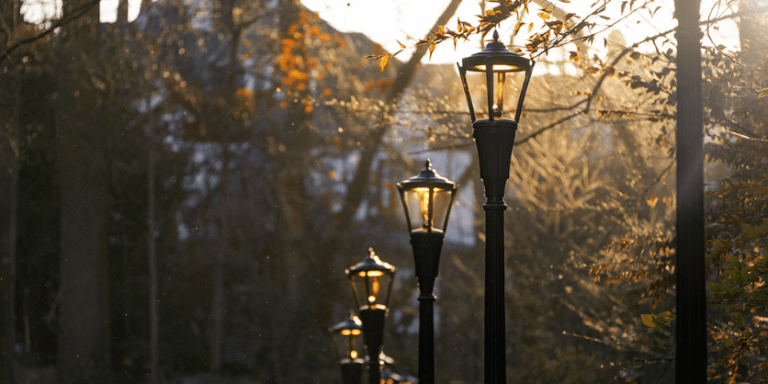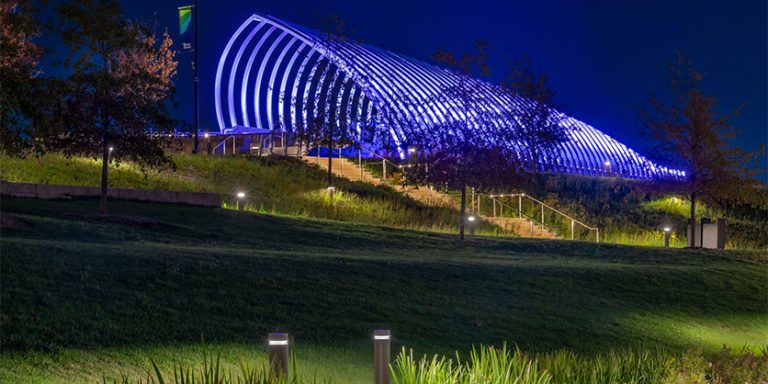Artificial Sky Installation Provides Benefit to Nursing Home Patients
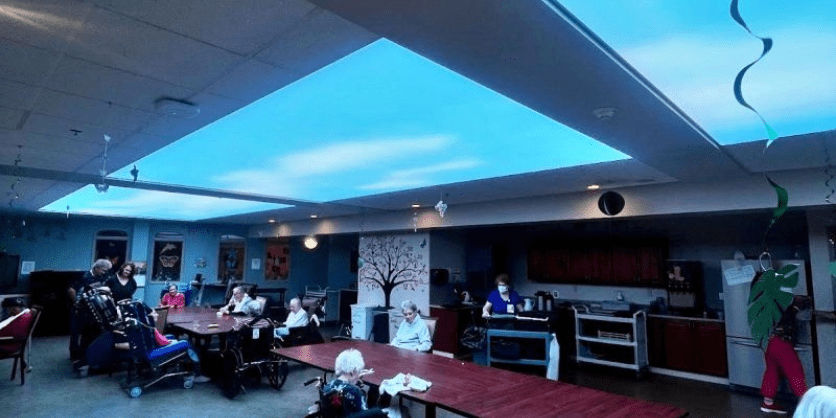
An Albany, N.Y.-based nursing home recently installed an Artificial Sky ceiling in one of its patient care wings thanks to the work of Master of Public Health (MPH) student Alexandra Smith.
As part of her MPH internship, Smith oversaw the installation and conducted research to evaluate the artificial sky’s impact on residents. The Artificial Sky product is a series of seamless panels that use high-luminance lighting to replicate the look of a natural blue sky and sunlight. It uses AI technology to display images that correspond to the time of day, and can display clouds, birds, and even simulate sunsets.
Smith had been involved in the sky project previously, when she worked at the Our Lady of Mercy Life Center (OLOM) nursing home. An Albany native, Smith was a certified dementia practitioner with a Master’s degree in Healthcare Administration at that time. She applied for a grant to install the artificial sky because she thought it would be especially beneficial to residents with dementia.
“The memory care unit is on the lower level of the building, which unfortunately does not get much natural light,” she said. “Because dementia also impacts the circadian rhythm, the combined effects can lead to the exacerbation of a lot of the behavioral symptoms of dementia such as depression, anxiety, agitation, and aggression.”
Although the grant was awarded, the onset of the pandemic delayed the project. By the time funding for the artificial sky had become available, Smith had moved on to a new position and had enrolled in the School of Public Health’s online Master’s program.
“I chose to pursue an MPH because I wanted to learn more about policy development in hopes of one day enacting
meaningful, substantive change on behalf of the geriatric population, specifically those with memory impairment and cognitive health disorders,” Smith said. “The online MPH program worked best with my full-time career as a nursing
home executive director.”
The MPH program also has a required internship, which gave Smith an opportunity to go back to OLOM. “It seemed like a good reason to go back to see my residents and help OLOM finish up the proof of concept of this project,” Smith explained. “I worked closely with the interdisciplinary team at OLOM to collect data pre- and post-sky installation. We wanted to see the impact the sky had on the number of falls, antipsychotic usage, resident activity participation, sleep cycles, and overall
staff satisfaction. We did this using the data that is already collected in the electronic medical records and through surveys and collection tools that I helped develop during the internship.”
So far, the data have shown that the artificial sky is having a positive impact on residents.
“During the study period, there were fewer falls in the area where the artificial sky is installed, as well as better sleep cycles and improved staff satisfaction compared to the other unit on the ground floor, which does not have a sky,” Smith noted. “However, not enough data was collected to establish an association between the installation of the sky and the usage of antipsychotic medication or between the artificial sky and specific behaviors of the residents; however, OLOM is still collecting data and they are working on answering those questions.” After completing her internship, Smith said she would recommend installing an artificial sky to other skilled nursing centers. “It’s cool knowing that we were the first to do it in the U.S.,” she remarked. “I think it’s an important intervention for any resident living in a health care facility that was not designed with the environment or natural conditions that humans need in mind.”
Related Articles
https://www.uslightingtrends.com/portfolio/artificial-sky-education/



